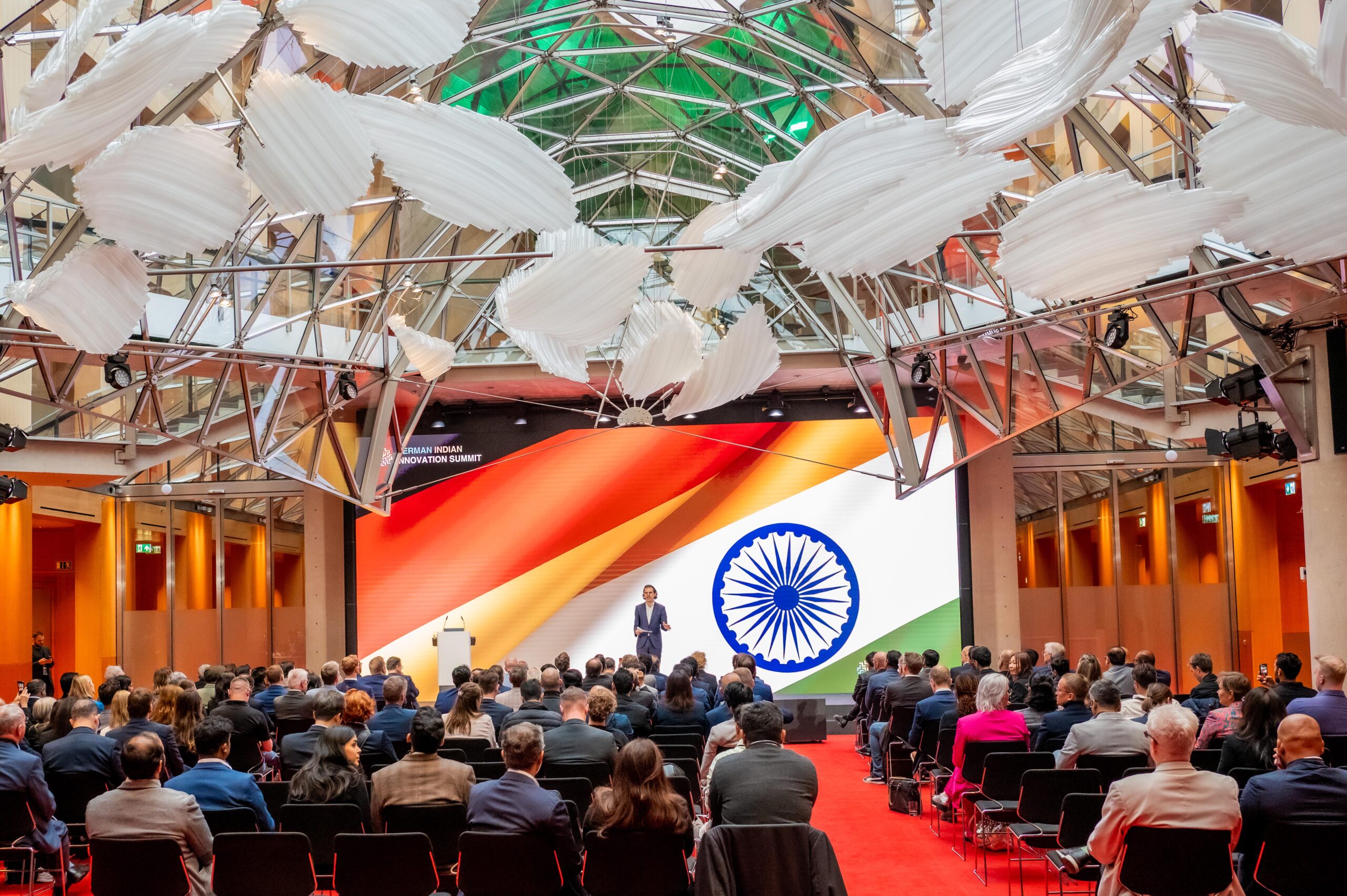- Home
- Education & Opportunities
- Jobs in Germany
- Germany’s Work Market- Stabi ...
Germany’s Job Market-Uncertainty, Challenges, and Opportunities for Indian IT Professionals
Thriving in Germany: Secure Your Job, Master Your Visa, Adapt to Success!
The European job market is undergoing a period of uncertainty as Germany, Europe’s largest economy, grapples with recessionary pressures driven by sluggish industrial growth, energy price fluctuations, and high inflation. The once booming tech industry is now witnessing hiring slowdowns, layoffs in startups, and stricter visa sponsorship policies, leading to concerns about job security for foreign professionals, including Indians working in Germany.
Despite an ongoing skilled labor shortage in IT, engineering, and healthcare, companies are shifting focus toward cost-cutting, automation, and EU-based hiring, making it increasingly difficult for non-EU professionals to secure stable employment. Strong German language skills and specialized expertise have become more crucial than ever for job seekers looking to stand out in this competitive landscape.
“I don’t know if I made the right decision moving here.”
Ravi stirred his coffee, looking frustrated. A software engineer from Pune, he had landed a promising job in Germany a year ago. The pay was good, the work-life balance was great, and life in Europe seemed exciting. It was everything he had worked for. Or so he thought.
“My contract isn’t being renewed,” he said, shaking his head. “I have three months to find a new job, or I have to pack up and leave. I never thought job security would be this uncertain here.”
His words hit hard. Germany, often seen as a dream destination for IT professionals, is going through an economic slowdown. Companies are cutting costs, freezing hiring, and scaling back on visa sponsorships. The once booming tech industry is now unpredictable, making job security a growing concern for foreign professionals.
And Ravi isn’t alone. Many Indian IT professionals in Germany are facing the same struggles—short-term contracts, visa pressures, and adapting to a work culture that feels unfamiliar.
So, is Germany still the dream job market it once was? Or is the reality far more complicated? Let’s take a closer look at the current job landscape and what it takes to succeed.

1. Job Security: The German Reality Check
“In India, I switched jobs every two years and got a raise each time. Here, I’m stuck on a contract that might not even get renewed!”
Ravi’s experience isn’t uncommon. Unlike in India, where IT professionals often jump companies for better opportunities, Germany’s job market operates differently. Many companies hire on fixed-term contracts (befristeter Vertrag)—which means you’re never quite sure if you’ll have a job after a year or two.
What’s the challenge?
Fixed-term contracts over permanent jobs – Not every company offers a permanent position (unbefristeter Vertrag) upfront.
Layoffs in tech startups – With economic uncertainty, funding is drying up, leading to job cuts in mid-sized tech firms.
EU preference for hiring – Many companies prefer hiring European candidates because they don’t require visa sponsorship.
How to secure your future?
Target companies offering permanent contracts – Prioritize employers that offer long-term stability.
Upskill in high-demand fields – Cloud computing, AI, cybersecurity, and DevOps are still in demand.
Network like your career depends on it – Engage in LinkedIn, Indo-German IT forums, and meetups to stay ahead.
Know your rights – Germany has strict employment protection laws (Kündigungsschutz)—make sure you understand them.
2. Visa Issues: The Hidden Pressure
“I didn’t think I’d have to worry about my visa again. But now that I lost my job, I have only three months to find a new one!”
Germany welcomes skilled workers—but if you lose your job, your visa status is at risk. The EU Blue Card and Skilled Worker Visa (Blaue Karte / Aufenthaltstitel für Fachkräfte) are great, but they come with time limits.
What’s the challenge?
Lose your job? You have just three months – If you don’t find another job in time, you might have to leave Germany.
Visa sponsorship is rare – Many companies prefer hiring EU citizens because visa processes take time and cost money.
Long visa processing times – If your work permit is under review, you could be stuck waiting for months.
How to protect yourself?
Get an EU Blue Card – It allows faster PR (33 months, or 21 months with B1 German level) and easier job changes.
Always have a Plan B – Keep job leads and contacts ready in case of layoffs.
Understand visa transfer rules – If switching jobs, ensure your new employer supports visa transfers before resigning.
Apply for PR early – Don’t wait—get Permanent Residency (Niederlassungserlaubnis) to remove visa dependency.
3. The Workplace Culture Shock
“I thought I was doing fine at work, but my boss told me I need to ‘communicate better’. What does that even mean?”
German work culture is direct, structured, and efficiency-driven. There’s no micromanagement, but there’s also no hand-holding. Unlike in India, where socializing at work is common, Germans are more focused on work-life balance and clear communication.
What’s the challenge?
Language barriers – Even in IT, knowing German (A2/B1) helps in career growth.
Direct feedback – Germans don’t sugarcoat things. If something is wrong, they’ll tell you outright.
Work-life balance is serious – Overworking isn’t seen as dedication—it’s seen as inefficiency.
How to fit in?
Learn basic German – Even A2/B1 can help with workplace communication and PR applications.
Accept direct feedback professionally – Germans value honesty—it’s about improvement, not criticism.
Respect work-life balance – No one is impressed if you stay late in the office—efficiency is key.
Join workplace activities – Office meetups and networking events help in career growth.
4. The Salary vs. Taxation Shock
“I thought I’d be rich with my salary here, but after taxes, I barely save more than I did in India.”
Germany offers good salaries, but taxes and deductions are higher than what many Indians expect.
What’s the challenge?
High tax rates (30-42%) – Your net income is much lower than your gross salary.
Mandatory deductions – You can’t avoid health insurance, pension, and social security contributions.
City-based cost differences – Munich and Frankfurt are expensive, while Berlin is more affordable.
How to manage?
Negotiate a strong salary package – Use Glassdoor, StepStone, and Kununu for salary benchmarks.
Optimize your tax class – If married, choose Tax Class III to maximize take-home pay.
Track work-related expenses – Claim tax deductions for training, travel, and home office costs.
The Question ? Can Indian IT Professionals Still Succeed in Germany?
“Germany is still a great place for IT professionals, but the game has changed. You just need to be smarter about how you navigate it.”
Germany isn’t the golden ticket it once was, but opportunities still exist for those who plan well, upskill, and adapt.
Focus on job security – Look for permanent contracts and future-proof your skills.
Understand visa policies – Plan for Blue Card benefits and PR applications early.
Adapt to workplace culture – Learn basic German, embrace feedback, and integrate socially.
Stay ahead with skills & networking – The stronger your expertise and connections, the better your career prospects.
Have you faced challenges as an Indian IT professional in Germany?
Share your experience in the comments and let’s help each other grow!
Final Thought
This article is shaped by many shared experiences, recent developments, and heartfelt stories gathered through careful listening and observation. It brings together voices from different walks of life who are navigating professional aspirations and cross-border transitions in a rapidly changing environment.
Rather than offering rigid conclusions, the piece aims to create space for reflection—highlighting real challenges, emerging trends, and possibilities. The goal is to inform with sincerity, inspire with relevance, and gently encourage thoughtful, well-informed decisions for those exploring new horizons.
May these insights serve as a companion in the journey toward clarity, confidence, and meaningful progress.




